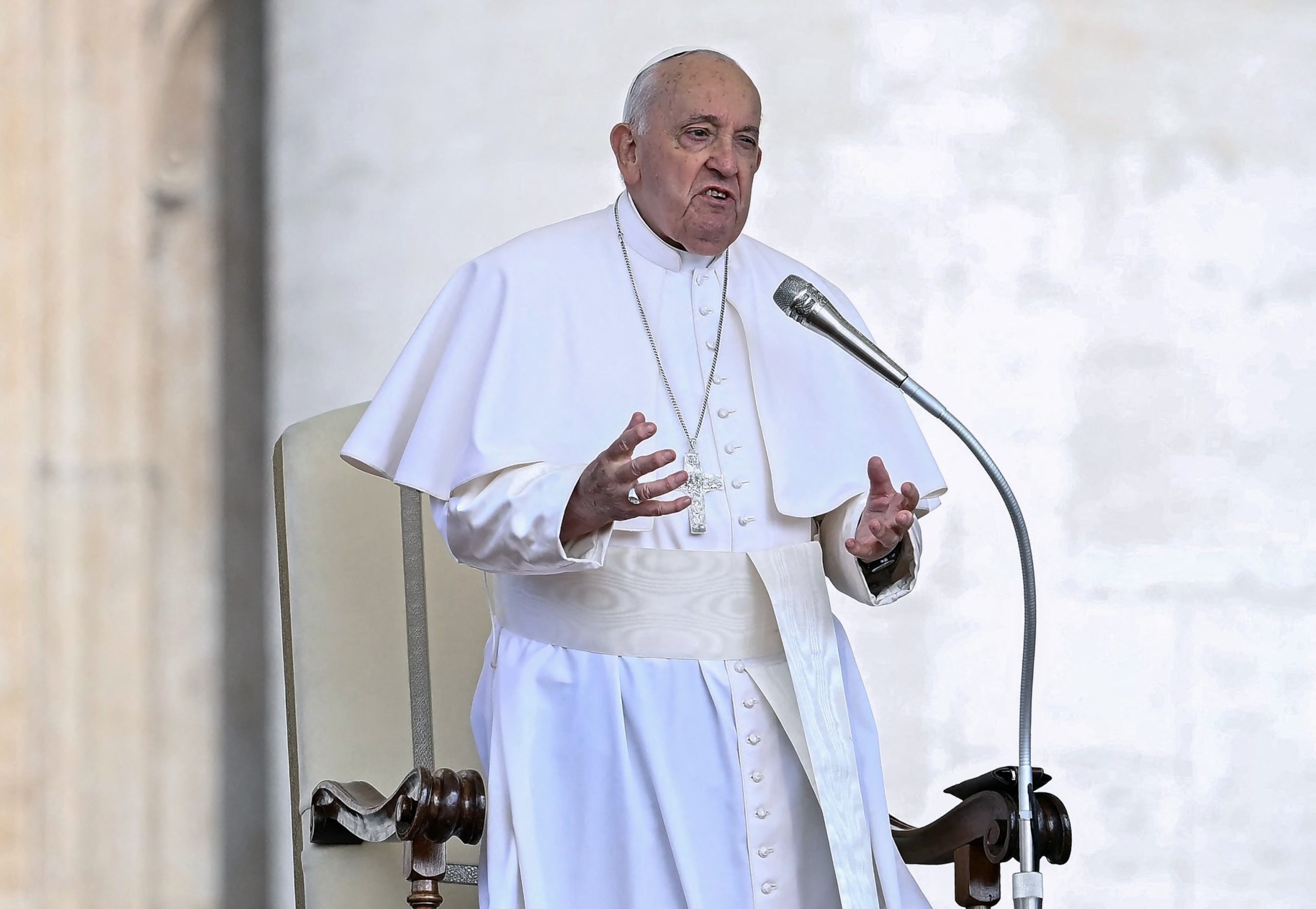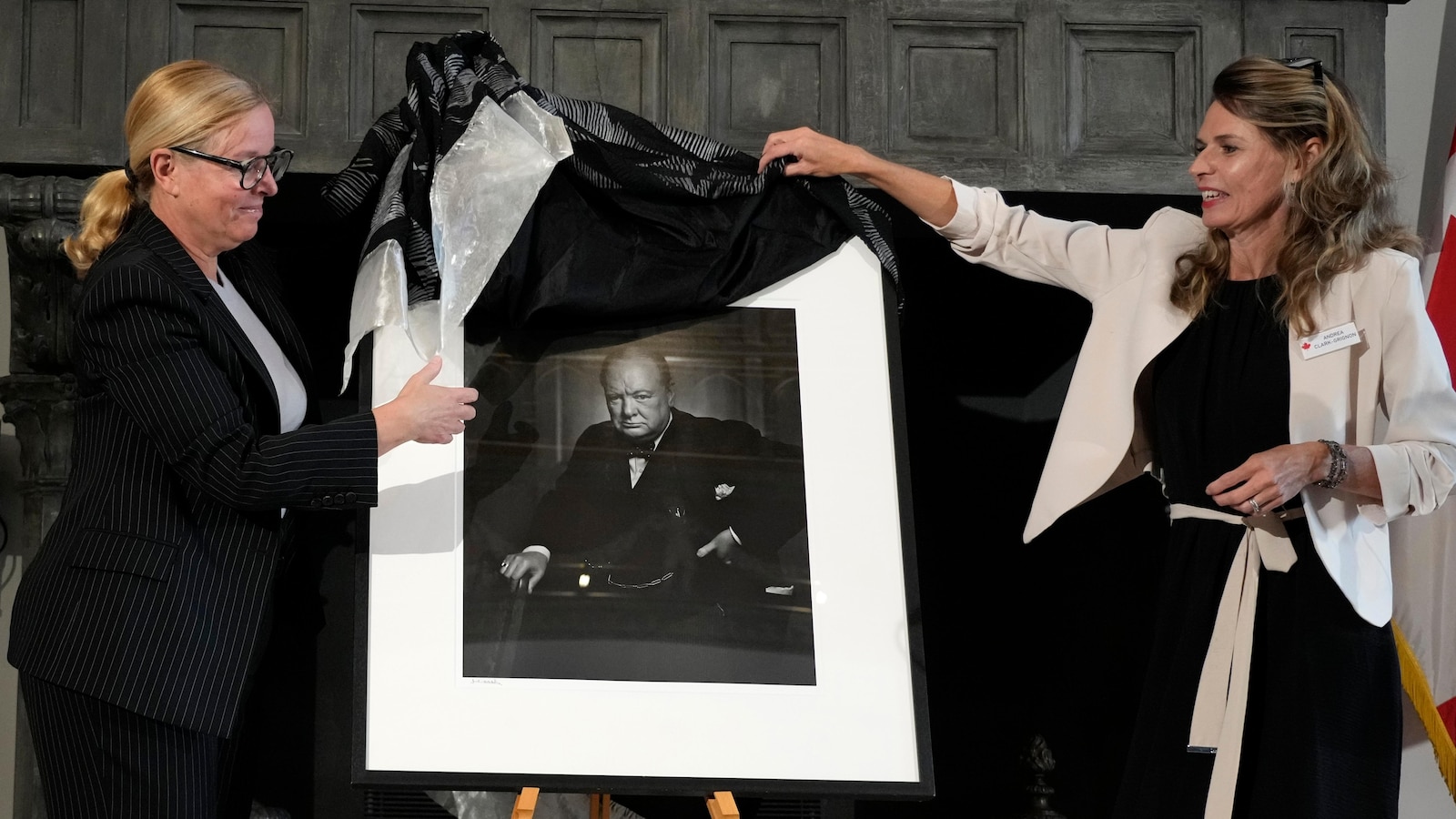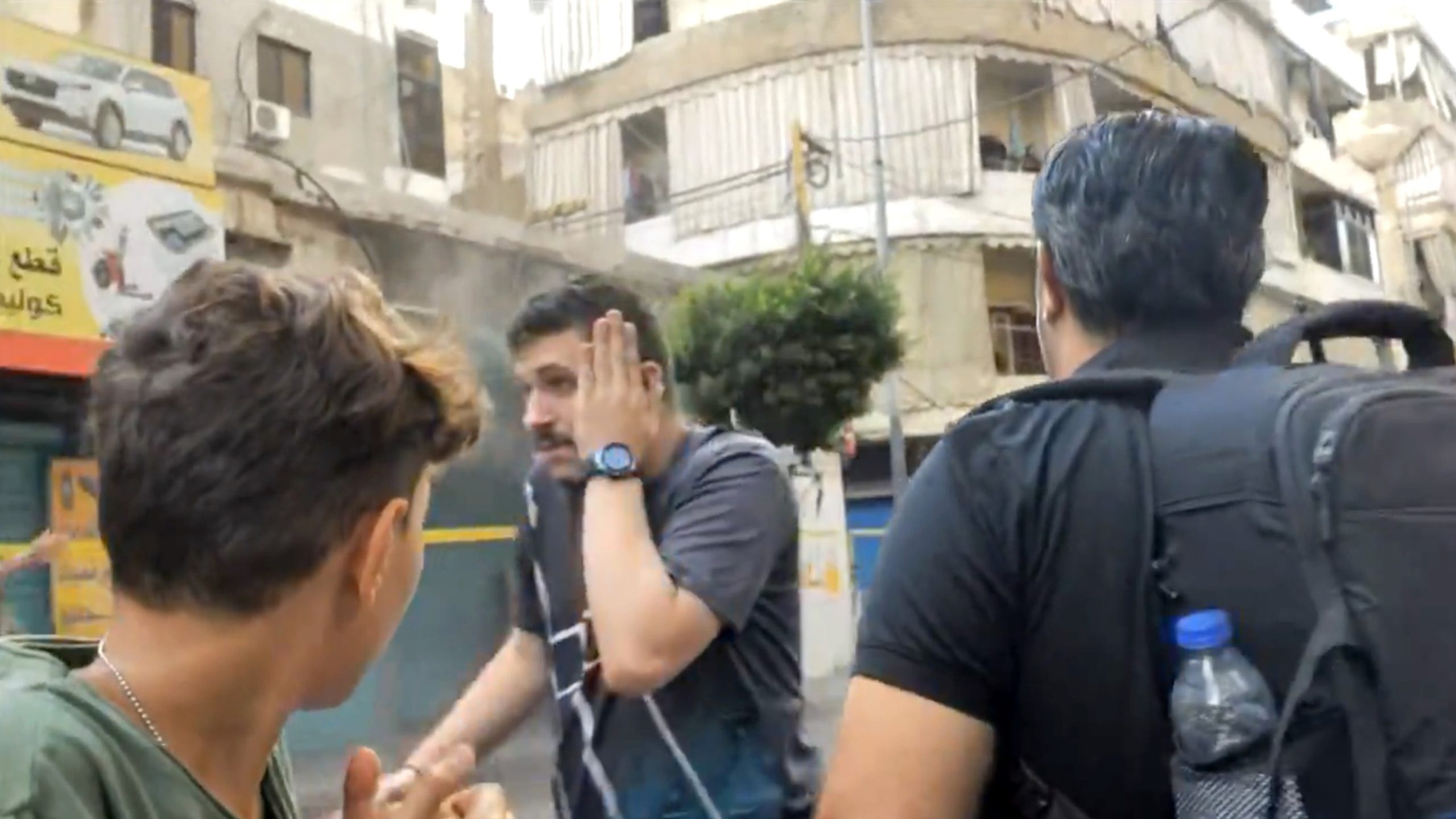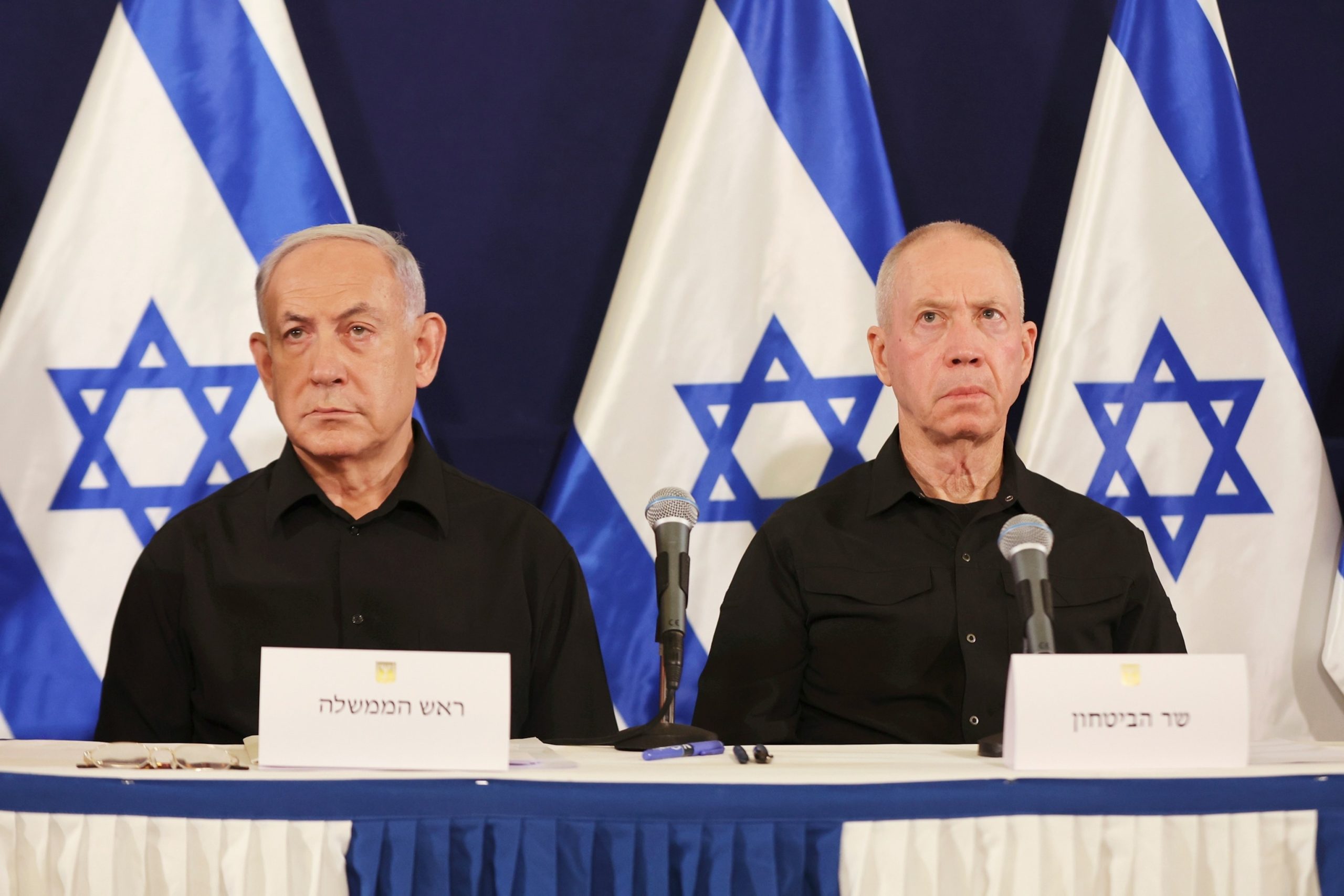Pope Francis is apologizing after reports that he used an offensive term for gay men in a recent closed-door meeting.
“Pope Francis is aware of articles that recently came out about a conversation, behind closed doors, with the bishops of the [Italian Bishops Conference],” the Vatican press office said in a statement from Holy See Press Office Director Matteo Bruni.
Italian media sourced the use of the term to unidentified bishops who reportedly overheard Pope Francis’ speech at a meeting of the Italian Bishops’ Conference. They claim in reports that Pope Francis used the term while reinforcing longstanding Church instruction against allowing homosexual men to enter the seminary to train for the priesthood.
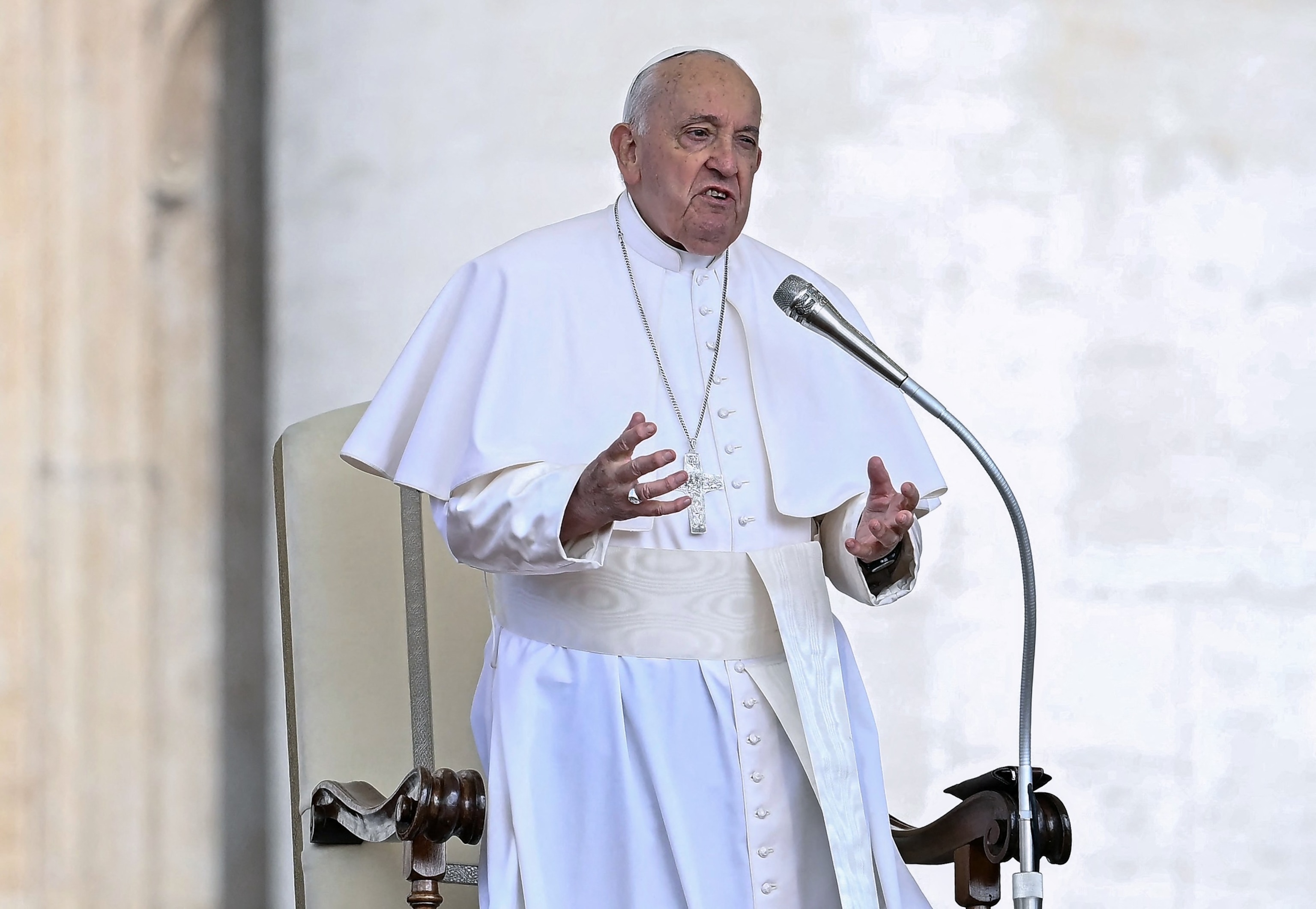
Pope Francis addresses pilgrims during his weekly general audience in St. Peter’s Square at the Vatican May 22, 2024.
Filippo Monteforte/AFP via Getty Images
“The Pope never intended to offend or express himself in homophobic terms, and he extends his apologies to those who were offended by the use of a term, reported by others,” the Vatican’s statement continued. “As he has had the opportunity to state on several occasions, ‘In the Church there is room for everyone, for everyone! No one is useless, no one is superfluous, there is room for everyone. Just as we are, everyone.'”
In 2023, Pope Francis called on a crowd of hundreds of thousands on World Youth Day to yell back at him that the Catholic Church is for “todos, todos, todos” — everyone, everyone, everyone. He was later asked how he could reconcile his “todos” message with the fact that LGBTQ+ people are excluded from the sacraments. The pope answered the Church has laws, but is still a place for everyone.
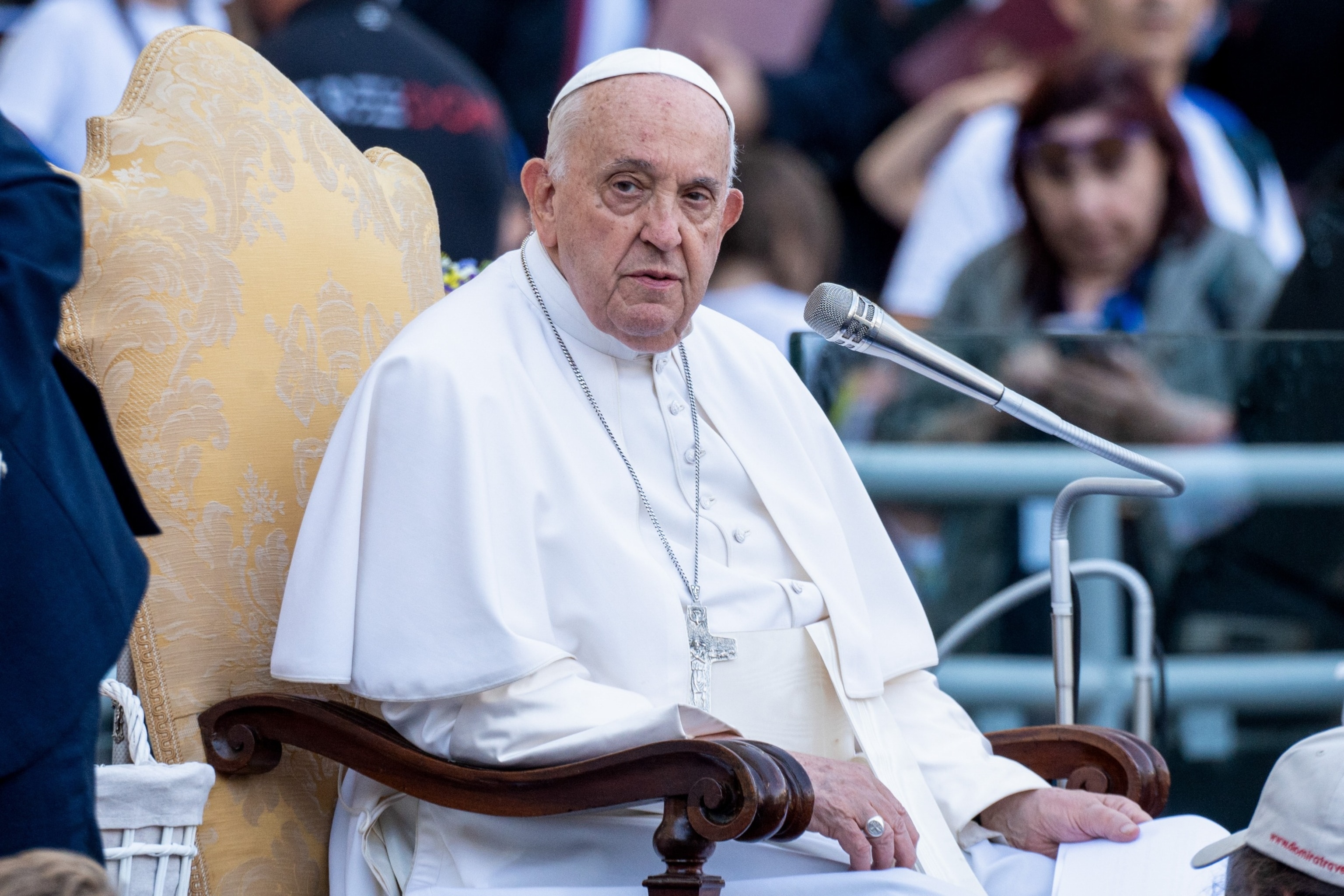
Pope Francis attends the World Children’s Day (WCD) event at the Olympic Stadium May 25, 2024.
Stefano Costantino/SOPA Images/LightRocket via Getty Images
The pope’s reported use of the slur surprised many. Throughout his papacy, Francis has introduced an openness concerning the LGBTQ community, though he has upheld the church’s position on doctrinal matters.
Related Stories
When a journalist asked Francis a question about gay priests while returning from the first foreign trip of his papacy in 2013, the pope stunned people with his response: “If a person is gay and seeks God and has good will, who am I to judge?”
Pope Francis also has criticized laws that criminalize homosexuality, and has formally approved allowing Catholic priests to bless same-sex couples – a significant change in Vatican guidance.
Pope Francis, whose native language is Spanish and not Italian, has at times during his papacy made up words, or used slang or inappropriate phraseology during his remarks, often while speaking off-the-cuff.
ABC News’ Melissa Gaffney and Ines de la Cuetara contributed to this report.
Pope Francis recently issued an apology for using an offensive term to refer to gay men during a conversation with a group of parents of LGBTQ children. The incident occurred during a private meeting at the Vatican in which the Pope reportedly used the Italian word “frocio,” which is considered a derogatory term for gay men.
The Pope’s use of this offensive language sparked outrage and criticism from LGBTQ advocates and allies, who called on him to apologize and retract his statement. In response, Pope Francis issued a public apology, acknowledging that his choice of words was inappropriate and hurtful.
In his apology, the Pope expressed regret for causing offense and emphasized his commitment to treating all individuals with respect and dignity, regardless of their sexual orientation. He also reaffirmed his support for LGBTQ rights and equality, stating that discrimination and prejudice against LGBTQ individuals have no place in society.
This incident serves as a reminder of the importance of using inclusive and respectful language when discussing issues related to sexual orientation and gender identity. It also highlights the need for continued education and awareness around LGBTQ issues within religious communities and institutions.
Moving forward, it is crucial for religious leaders, including the Pope, to be mindful of the impact of their words and actions on marginalized communities, and to strive for greater understanding and acceptance of all individuals, regardless of their sexual orientation or gender identity.
In conclusion, Pope Francis’ apology for using an offensive term for gay men serves as a teachable moment for all individuals, reminding us of the power of language to either uplift or harm others. It is a step in the right direction towards promoting inclusivity, respect, and acceptance for LGBTQ individuals within the Catholic Church and beyond.
